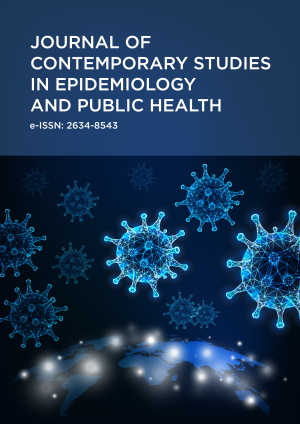Abstract
Introduction: The importance of academic equipment in biochemical and microbiological evaluations of SARS-CoV-2 is increased. In this context, different techniques have been developed in the diagnosis and treatment of COVID-19 disease as qRT-PCR, rapid antigen tests and vaccine technology. The first known example of vaccine technology is the CoronaVac (Sinovac, China) inactivated vaccine throughout pandemic. In the presented study, the sensitivity of CoronaVac in the community would be positively increased and this data would be strengthened. In addition, antibody sensitivity of the CoronaVac between two doses, as well as the hemogram and biochemical analyzes were evaluated. The focus will be on increasing the sensitivity of the society to the vaccine.
Materials and methods: The immunoglobulin, biochemical analyzes, hemogram, and iron-iron binding capacities were evaluated after vaccinated person in a vaccine administration center in Istanbul, Türkiye.
Results: RBDIgG level was significantly higher after second dose (p<0.05). Mon#, Bas#, IMG#, Mon, Hgb, MCH, MCHC, RDWCV, RDWSD, and PDW levels were higher at 28th day. RBDIgG, Fe, WBC, Neu#, Lym#, Eos#, and PLT levels were higher at 42nd day. All other parameter means were higher at 56th day. RBDIgG, Fe, WBC, RDWCV, RDWSD and PDW differences between 28th and 42nd days were significant (p<0.05). RBDIgG, HCT, MCV, MCH, MCHC, and RDWCV differences between 28th and 56th days were statistically significant (p<0.05). RBDIgG, MCV and MCH differences between 42nd and 56th days were statistically significant (p<0.05).
Discussion and conclusion: The 60 volunteers in our study were laboratory, emergency service staffes and hospital personnel working at high risk of COVID-19. There was no differentiation in blood values related to the vaccine. It has been shown as an example of the phase-1 and the side effects of the CoronaVac, were also evaluated, and all our volunteers were followed for 60 days, and no possible serious side effects were observed. In groups with statistical significance in blood results, a vaccine related observation is not clearly revealed. We see that CoronaVac vaccine offers a positive confidence interval in antibody responses after the 2nd dose. These data are great importance in terms of better monitoring of the data by the anti-vaccine groups in Türkiye. It is beneficial to remove the vaccine mistrust against the anti-vaccination and pave the way for social immunization. This study contributes to the accuracy of the ministry and the vaccination strategy implemented in Türkiye. The result of this study provides preliminary information for the studies that will result from the application of the 3rd and 4th dose of vaccines.
License
This is an open access article distributed under the Creative Commons Attribution License which permits unrestricted use, distribution, and reproduction in any medium, provided the original work is properly cited.
Article Type: Original Article
J CONTEMP STUD EPIDEMIOL PUBLIC HEALTH, Volume 4, Issue 1, 2023, Article No: ep23005
https://doi.org/10.29333/jconseph/13048
Publication date: 08 Mar 2023
Article Views: 1479
Article Downloads: 1156
Open Access References How to cite this article
 Full Text (PDF)
Full Text (PDF)